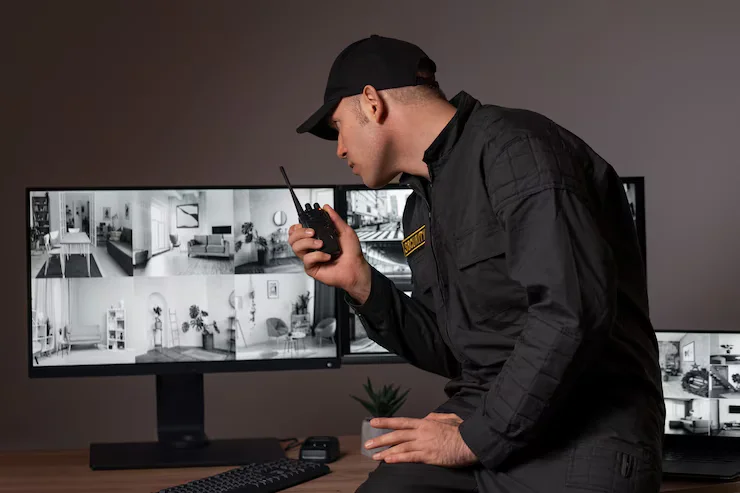In the United Kingdom, private investigators (PIs) operate within a framework of laws that allows for some form of surveillance while simultaneously protecting the rights of individual privacy. While PIs do not have to be formally licensed, they operate under various legal and ethical rules that try to guarantee good behavior within the industry.
Legal Framework Governing Surveillance by Private Investigators
1. Public vs. Private Spaces
Private investigator services in the UK operate under a combination of legal guidelines that attempt to balance individual privacy with the need for tracking. PIs are not statutorily required to have licenses, and therefore operate without one, but they are bound to a myriad of laws and ethical regulations which, in one way or another, guarantee ethical and legal PIs conduct.
2. Regulation of Investigatory Powers Act 2000 (RIPA)
RIPA outlines what acceptable surveillance and interception communication practices are as public institutions’ interception of authority communications.
Although surveillance of private citizens is largely the domain of public bodies, PIs must also be wary of RIPA so that they do not perform illegal surveillance. Unlawful interception of communications combined with aggressive surveillance could create liability for criminal offenses.
3. Investigatory Powers Act 2016
Snoopers Charter, as it is colloquially known, is an Act that extends constraints as well as broadens the scope of monitoring activities. While private entities control the public ones, PIs have to make sure that their conduct does not clash with the privacy laws introduced by this Act.
4. Computer Misuse Act 1990
This Act makes it a crime to have unpermitted access to computer systems and data. Private sector investigators must have the appropriate permissions before accessing any documents to avoid legal violations concerning breaching digital documents within electronic files.
5. Data Protection Act 2018 and UK GDPR
Private data holders dealing with PIs must comply with all terms, principles, and policies of data protection law in the UK, such as legitimacy, fairness, openness, data minimisation, accuracy, data retention limits, and security. Everyone dealing with personal data is required to be registered with the Information Commissioner’s Office (ICO).
6. Human Rights Act 1998
Surveillance must not infringe the rights of the subjects as provided under the Human Rights Act, in particular, Article 8, which requires the right of a person to private life and family life. Any infringements, however restricted, must be legal, needed, and proportionate.
7. Protection from Harassment Act 1997
The Act limits the variables that can be defined as stalking or monitoring that causes distress. Operatives must ensure their activities are not classified as harassing or stalking.
Ethical Standards and Professional Conduct
UK private investigators are not regulated by dedicated laws, however, the Association of British Investigators (ABI) provides voluntary professional accreditation, which issues a license. These standards are useful in enhancing responsibility and professionalism in the industry.
Key Ethical Principles:
- Respect for Privacy: Protecting and respecting privacy.
- Client Confidentiality: All information obtained during investigations should be held in confidence and disclosed only to authorised persons.
- Avoidance of Conflicts of Interest: Professional impartiality in all activities performed.
- Transparency and Accountability: Public trust is sustained by ensuring all surveillance methods employed are within legal and ethical boundaries, which in turn maintains confidence and trust.
Common Surveillance Techniques Used Legally by Private Investigators
Physical Surveillance
- Foot and Mobile Surveillance: Surveillance of public areas is executed without violation of individual privacy.
- Stakeouts: Surveillance of the locus is done to determine what types of activities and actions take place without actual physical presence in the location.
- Photography and Videography: Reasonable expectation does not apply to controlled circumstances where individuals are in public spaces, thus, photographs or videos may be taken.
Electronic and Digital Surveillance
- Social Media Monitoring: Details of subjects can be obtained from social networking sites, which, through verification, are open for disclosure.
- GPS Tracking: Using GPS equipment requires permission from the vehicle proprietor, employment without consent is a potential violation of the privacy act and trespass.
- Digital Forensics: The use of information stored electronically cannot occur without permission under the Data Protection Act, Computer Misuse Act, and other laws relating to protected information.
Handling Sensitive Information
In the context of personal inquiry investigations, restricting access to sensitive private information is vital. The entire data set must be securely stored using encrypted digital files as well as physical locking safes. Such access must be confined to those who have a genuine need to know, alongside strict confidentiality clauses.
The Future of Regulation in the UK Private Investigation Sector
As of now, the private investigation industry in the United Kingdom is operating without formal regulation. Like any profession, the need to have licensing model frameworks in hopes of enhancing public trust and confidence is likely to be considered. The Information Commissioner’s Office, Association of British Investigators, and Solicitors Regulation Authority are already developing some voluntary guidelines concerning operational ethics and training. These steps are meant to support potential future legislation.
Conclusion
While observing the boundaries of the surveillance law in the UK, not restricted to the bounds of the Regulation of Investigatory Powers Act (RIPA), the Investigatory Powers Act, the Data Protection Act, and other human medical rights international agreements, private investigators are permitted to carry out surveillance starting in 2025.
Their objectives are to provide a balance between civil liberties, non-harassment, and an array of socially accepted professional and ethical principles. There is no formal licensing yet, but there are ongoing efforts designed to construct so-called “underlying trust” in the profession.







